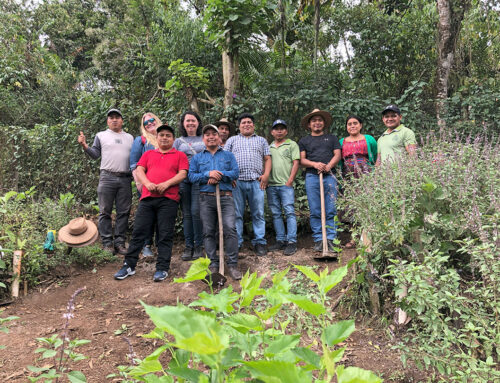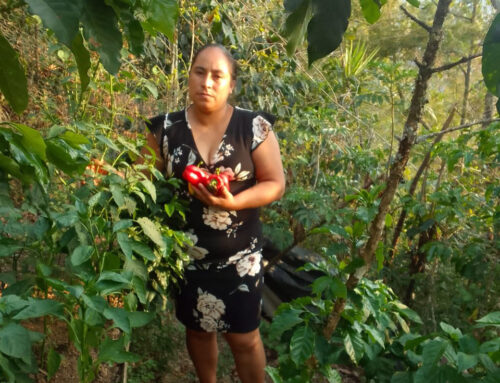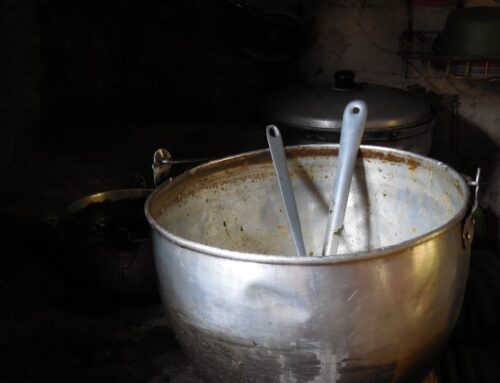Jessica Brooks (right) is a coffee buyer at Allegro Coffee. She recently traveled with Food 4 Farmers to Guatemala to visit our newest partner ACODIHUE, along with Maya Ixil, an organization we’ve worked with since 2014. While there, Jess had the opportunity to visit some of the beekeeping coffee farmers we work with, and saw how bees can be an integral part of food security.
Part of our work at Allegro is to build long-term relationships with the farmers growing your coffee. That’s why it was so good to spend time around the coffee cupping table in Santa Avelina in July with Pedro Jeremias Mendoza Toma, quality manager at the Maya Ixil Cooperative. As we sampled different roasts and shared notes, I understood better the many layers of our working relationship. It’s not just about the coffee, which is great. It’s about the families and how we work together to improve livelihoods beyond what’s in the cup.
Maya Ixil is a typical cooperative working in all directions: improving the quality of their coffee, providing employment opportunities in the community, training farmers, delivering community services, and finding ways to diversify income. It’s a lot of work, and that gives us an opportunity to do more than just buy coffee.
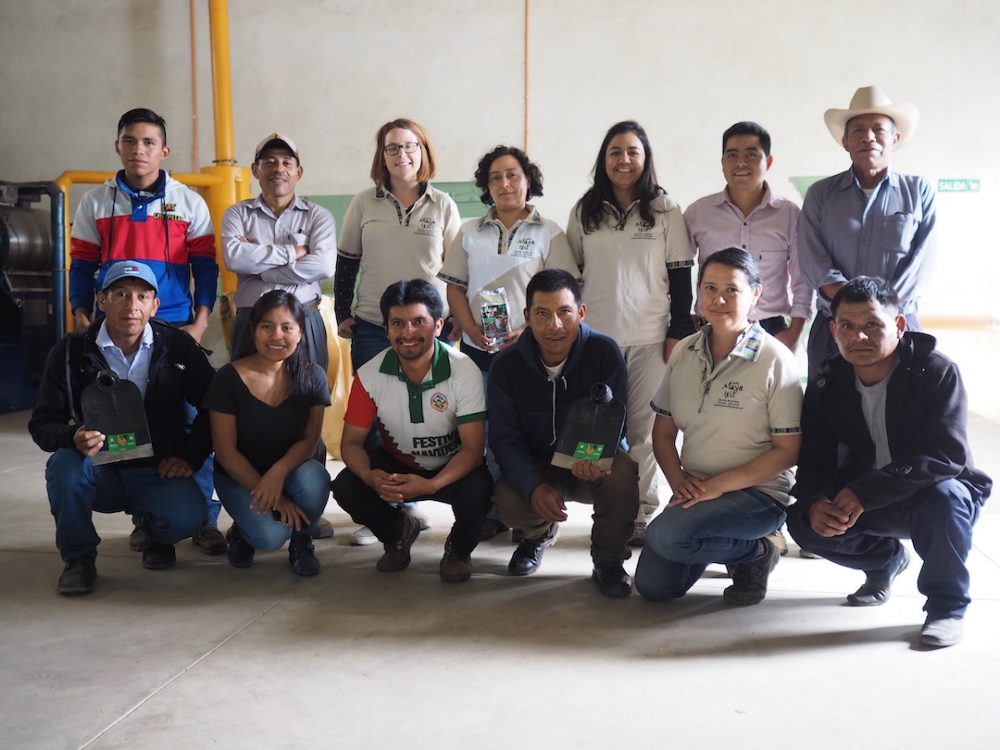
Our Making Coffee Matter program provides funding to coffee growers and non-profit organizations that invest in sustainable agriculture, health care, education and infrastructure to make a positive impact in their communities. This time around, we’re exploring bees and coffee — a simple connection, right? Pollinator, meet plant.
But the relationship between the two is anything but simple, as I learned on a recent trip visiting ACODIHUE and Maya Ixil with Food 4 Farmers. Spending a week with Food 4 Farmers staff showed a more complex, layered connection between coffee and bees. The bees not only act as beneficial pollinators, but the fruits of their labors (the honey) provide a much needed additional exportable source of income, and a locally consumed product.
While coffee production is not dependent on bees – coffee plants are self-pollinating – they have a real impact on coffee quality and overall health of the ecosystem in coffee-growing regions. Simply put – bees impact coffee for the better, both in improving cup quality, and biodiversity of the land surrounding coffee farms.
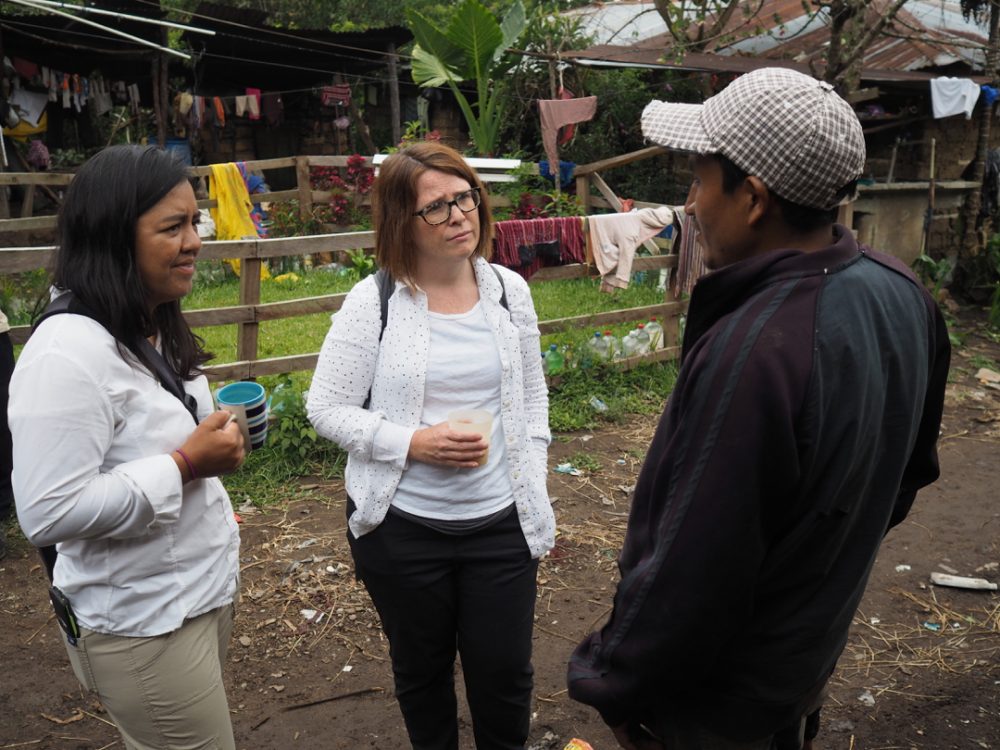
And it doesn’t stop there. Honey, and other products from the hive diversify farmers’ income, so they’re not solely dependent on coffee. Sold locally or exported, this can be an important part of coffee farmer livelihoods. Honey is also a healthier sweetener than processed sugar, and can be a nutritional food staple for farming families. Beekeeping here in coffee growing regions is an important avenue to strengthen producer knowledge, diversify income, amplify family health and nutrition, and contribute to community resiliency.
Food 4 Farmers is focused on this – addressing food security and seasonal hunger within communities by developing programs to increase access to and availability of sufficient, appropriate food.
Allegro has been supporting Food 4 Farmers since 2017. We continue to purchase coffee from ACODIHUE and Maya Ixil, who are both actively engaged in Food 4 Farmers programs. This partnership between Allegro and the cooperatives is rooted in quality coffee, but it’s equally important, and ultimately absolutely necessary for the longevity of specialty coffee in general, to consider the bigger picture – a holistic approach to buying coffee, where Food 4 Farmers, the cooperative and the buyer are interconnected. Because of this ongoing partnership, we wanted to highlight this connection in a special blend called Café La Abeja. Coffee from the two cooperatives are combined to create a blend that is bright and sweet, much like the honeys produced by the farmers of ACODIHUE and Maya Ixil.
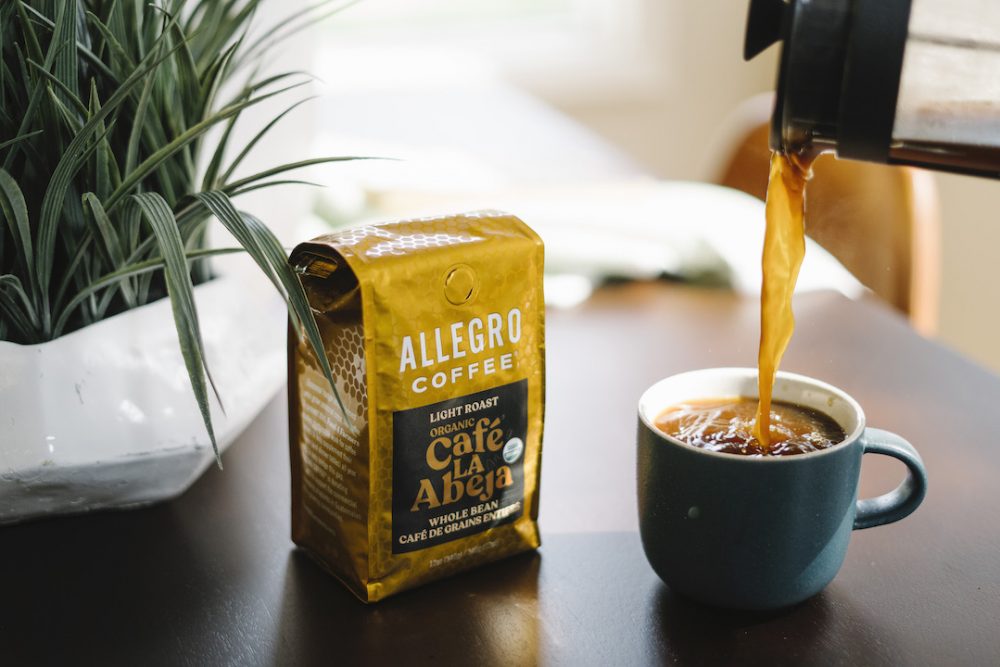
Allegro, Food 4 Farmers, ACODIHUE and Maya Ixil share the same value: a commitment to improving livelihoods of coffee farmers. Coffee and honey bees are working together, to support this value.
Win a bag of Café La Abeja! Check out our posts on Facebook & Instagram to participate.


